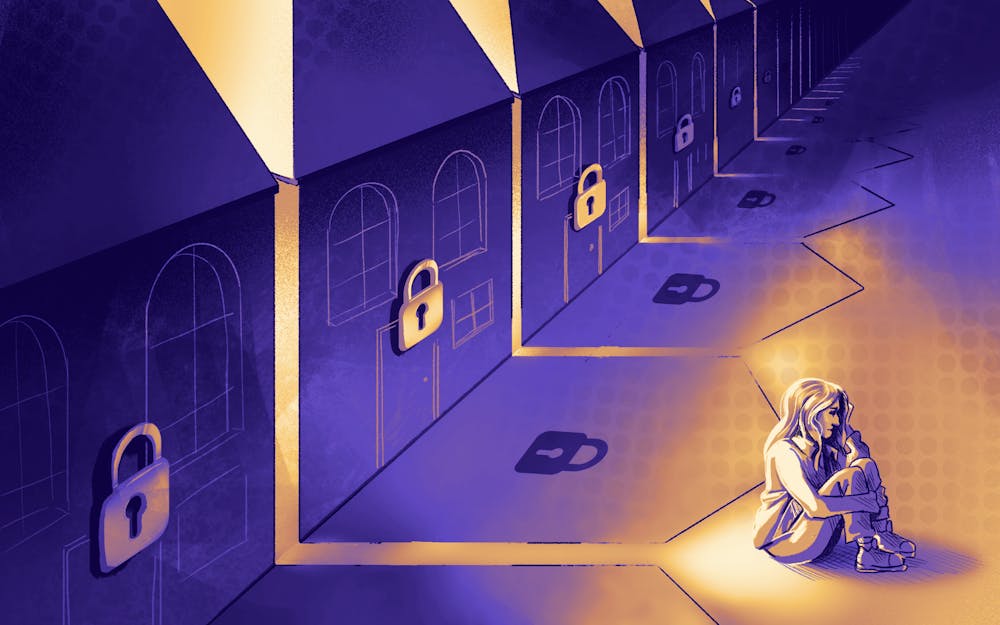The last Airbnb I stayed at was a cabin just outside of Great Smoky Mountains National Park during spring break last year. The house was nestled on the side of a mountain, with beautiful views and even a nice hot tub. There was just one problem: no Wi-Fi.
To be fair, Wi-Fi was guaranteed when my parents booked the property — I’m not an ungrateful member of Gen Z. I’d prefer to have access to the internet in case of emergencies and to maintain my Duolingo streak.
We contacted the owner of the property about the issue multiple times, and she said she’d work on it — eventually, she stopped responding. Luckily, we were able to get a few bars of cell service, but the experience left me soured with Airbnbs as a concept. There was no recourse if something didn’t work besides texting the owner — who, by the way, lived across the country, nowhere near our rental.
Airbnb’s increasing worthlessness has been noticed by users across the country — and even the company itself. Outrageous cleaning fees and booking costs have become the main talking points around the service.
However, Airbnb creates a deeper problem than expensive vacations. As the accessibility of affordable housing diminishes, the problem is exacerbated by a small group of people who have the resources to buy up houses and turn them into short-term rentals.
The typical single-family home here in Indiana is valued at around $245,000; five years ago, it was $158,000. More populous and tourist-heavy places face bigger issues. In Florida, a typical single-family home five years ago would cost $254,000; today it’s $418,000. And the problem isn’t going away anytime soon — national house prices are expected to increase by 2.9% in 2024.
Owners buying properties and using them for Airbnbs reduces options for locals. Most listings on Airbnb aren’t just everyday folks sharing a room in their house, but investors. About a quarter of hosts on Airbnb own two-thirds of the listings.
It upsets me that permanently inhabitable houses are being utilized for such temporary means in cities nationwide. I often think about how the dream of home ownership is far out of reach for myself and many people my age. To buy a median-priced home today, Americans have to earn $110,000 a year — the average salary nationwide is just under $60,000 a year. If only a few more houses could be allowed to reenter the market instead of being used solely for the financial benefit of a small group of owners.
Cities like New York, San Francisco and Santa Monica have passed regulations on short-term renting in order to clear up more housing for long-term habitation. San Antonio also recently required higher fees for short-term rentals, with one councilmember citing investors and scarce housing resources as reasoning for the fees. Though many of these regulations haven’t been in effect for long enough to see what impacts they’ll have, it’s clear that lawmakers see the issue inherent in Airbnb and services like it.
However, a lot more needs to be done to fully address the housing crisis in our country. One study found that Airbnb only contributed to about 1% of aggregate rent growth in New York City — and rents have increased by 32% over the last decade. Simply banning Airbnb won’t be an end-all-be-all solution for lawmakers.
Though Airbnb isn’t the only factor contributing to our housing crisis, it certainly isn’t helping. This summer holiday, consider steering clear from Airbnb, unless you want to find yourself more frustrated than relaxed.
Danny William (they/them) is a junior studying cinematic arts.






